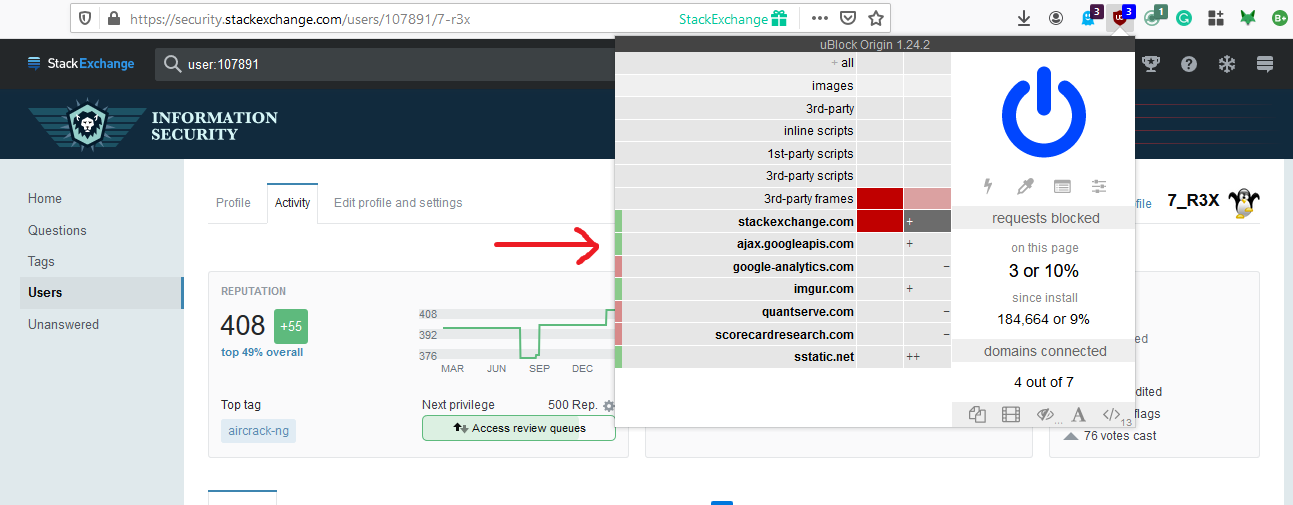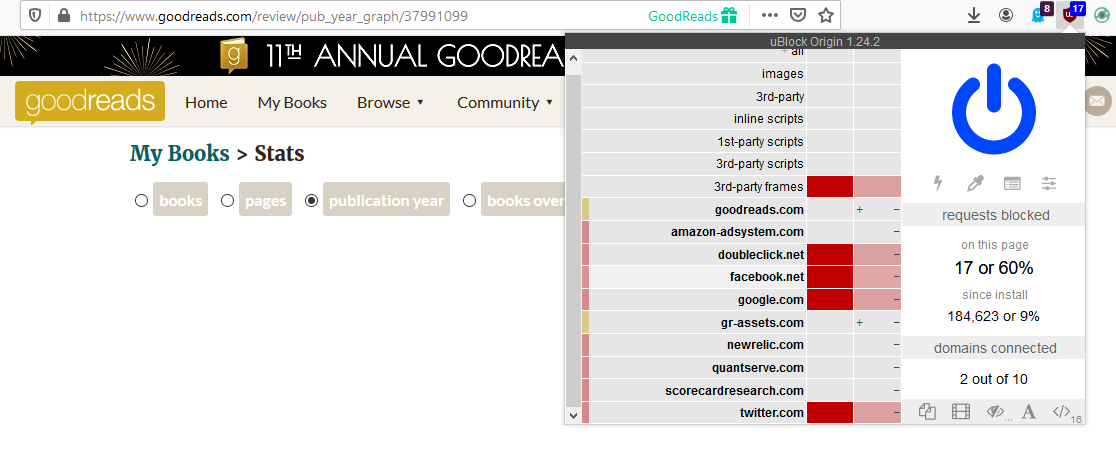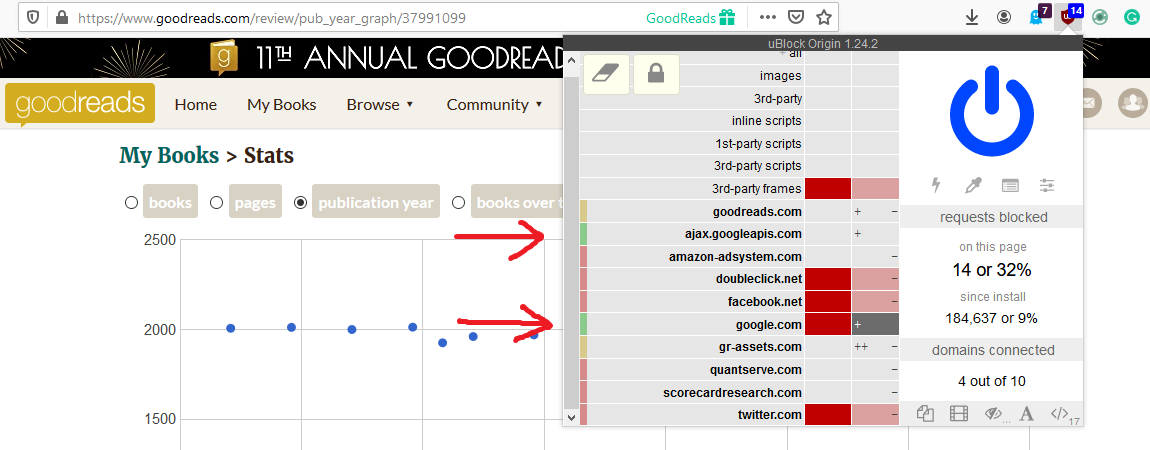I was browsing Goodreads.com with uBlock origin installed on my browser. I'm not a web developer but, I understand that some websites send requests to "ajax.googleapis.com" in order to design their UI. This website (security.stackexchange.com) does it too.
From the above screenshot, it's clear that ajax google APIs were used without sending a request to google.com on this page. So, I conclude that
Using ajax google APIs doesn't require the website to send a request to "google.com".
Green on the left side of uBlock origin panel means that requests were sent to these domains while visiting this page and thus those domains know about your presence on this website. Red represents that an attempt to was made to reach the domain but, it was blocked.
That being said, when I visited the stat page of Goodreads, I couldn't load the graph.
So, to fix it, I started unblocking the requested domains one at a time. When I unblocked "google.com", I noticed that requests were made to Google's Ajax APIs only after I unblock the request to "google.com".
This made me wonder why have the designers of this website programmed it that way it is? Why didn't they called Ajax APIs directly? The only reason I could think of is that it's a way of enforcing users to disclose their presence to Google. But, I'm open to the idea that I might be wrong. Could someone provide a technical clarification to what's happening here?
Is Goodreads letting Google know of my presence on their website?
EDIT: Sorry to use the term "Selling" I don't want to get political. Just looking for a technical explanation to this scenario and want to know if there's a possibility that there's a reason to sending requests to google.com other than letting Google know of my presence.



